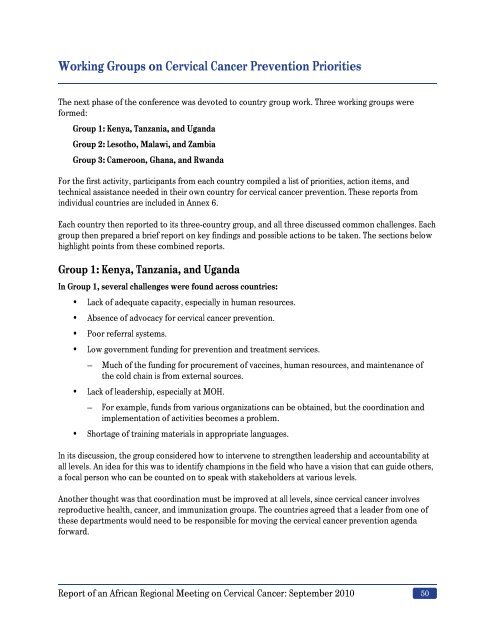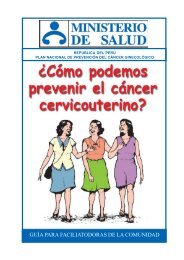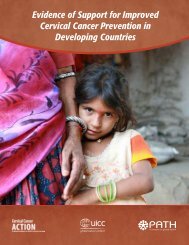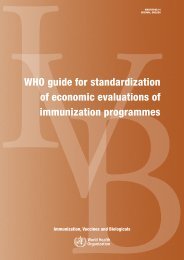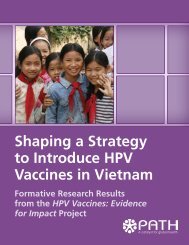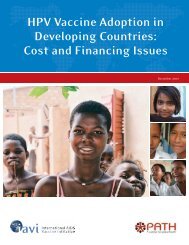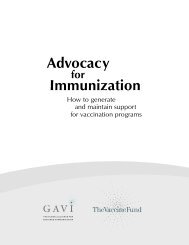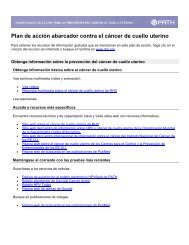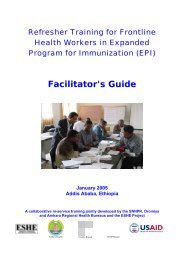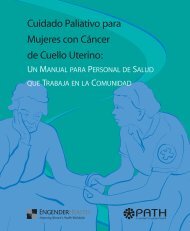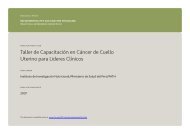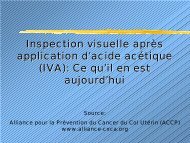Download file, English (1 MB PDF) - RHO
Download file, English (1 MB PDF) - RHO
Download file, English (1 MB PDF) - RHO
Create successful ePaper yourself
Turn your PDF publications into a flip-book with our unique Google optimized e-Paper software.
Working Groups on Cervical Cancer Prevention Priorities<br />
The next phase of the conference was devoted to country group work. Three working groups were<br />
formed:<br />
Group 1: Kenya, Tanzania, and Uganda<br />
Group 2: Lesotho, Malawi, and Zambia<br />
Group 3: Cameroon, Ghana, and Rwanda<br />
For the first activity, participants from each country compiled a list of priorities, action items, and<br />
technical assistance needed in their own country for cervical cancer prevention. These reports from<br />
individual countries are included in Annex 6.<br />
Each country then reported to its three-country group, and all three discussed common challenges. Each<br />
group then prepared a brief report on key findings and possible actions to be taken. The sections below<br />
highlight points from these combined reports.<br />
Group 1: Kenya, Tanzania, and Uganda<br />
In Group 1, several challenges were found across countries:<br />
• Lack of adequate capacity, especially in human resources.<br />
• Absence of advocacy for cervical cancer prevention.<br />
• Poor referral systems.<br />
• Low government funding for prevention and treatment services.<br />
– Much of the funding for procurement of vaccines, human resources, and maintenance of<br />
the cold chain is from external sources.<br />
• Lack of leadership, especially at MOH.<br />
– For example, funds from various organizations can be obtained, but the coordination and<br />
implementation of activities becomes a problem.<br />
• Shortage of training materials in appropriate languages.<br />
In its discussion, the group considered how to intervene to strengthen leadership and accountability at<br />
all levels. An idea for this was to identify champions in the field who have a vision that can guide others,<br />
a focal person who can be counted on to speak with stakeholders at various levels.<br />
Another thought was that coordination must be improved at all levels, since cervical cancer involves<br />
reproductive health, cancer, and immunization groups. The countries agreed that a leader from one of<br />
these departments would need to be responsible for moving the cervical cancer prevention agenda<br />
forward.<br />
Report of an African Regional Meeting on Cervical Cancer: September 2010 50


